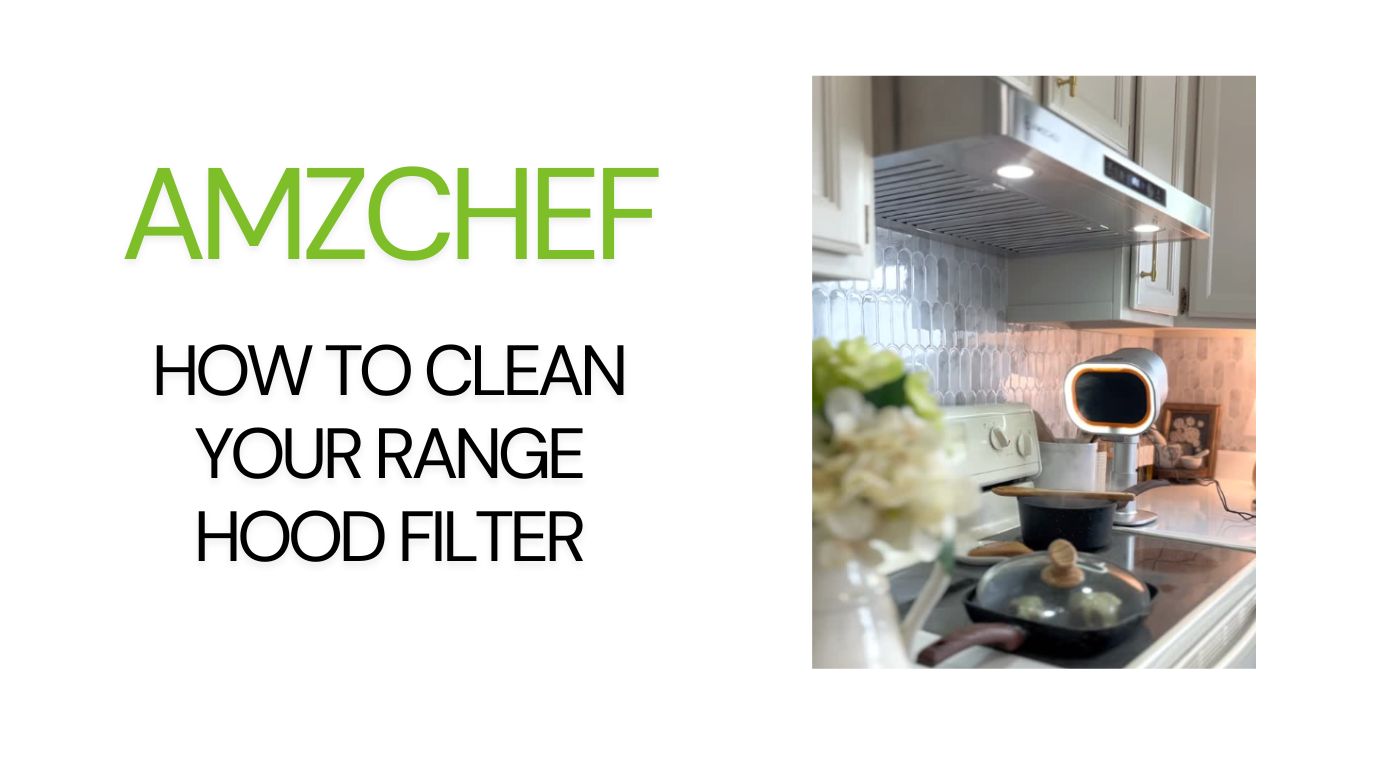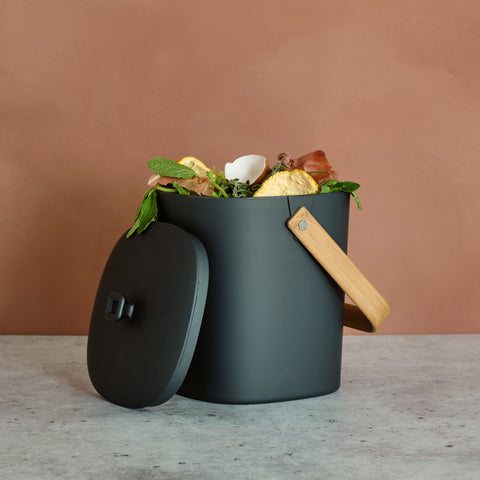Are you tired of feeling like your kitchen is constantly under a greasy cloud? That sticky, stubborn film on your kitchen exhaust hood filter could be the culprit.
Not only does a dirty filter reduce the efficiency of your range hood, but it also poses a potential fire hazard. You might wonder, "How can I tackle this greasy challenge without breaking a sweat? " The good news is, cleaning your kitchen exhaust hood filter doesn't have to be a daunting task.
With the right steps and a little elbow grease, you can transform that grimy filter into a sparkling clean one. Keep reading to discover the simple, effective method that will leave your kitchen feeling fresh and safe. Your future self will thank you!

Credit: www.realtor.com
Why Clean Your Exhaust Hood Filter
Cleaning your kitchen exhaust hood filter is important for many reasons. It helps keep your kitchen safe and running well.
A clean filter works better and lasts longer. Let’s look at why you should clean it regularly.
Health And Safety Benefits
A dirty exhaust hood filter can cause smoke and grease to build up. This is a fire hazard. It can also spread harmful bacteria.
- Reduces risk of kitchen fires
- Prevents buildup of harmful grease and smoke
- Keeps air cleaner and safer to breathe
Improved Kitchen Performance
A clean filter helps your exhaust hood work better. It removes smoke, steam, and smells quickly. This keeps your kitchen fresh.
| Effect | When Filter is Clean | When Filter is Dirty |
| Airflow | Strong and steady | Weak and blocked |
| Smoke removal | Efficient | Slow and incomplete |
| Odor control | Good | Poor |
Extending Filter Lifespan
Regular cleaning stops grease and dirt from damaging the filter. This helps the filter last longer and saves money on replacements.
- Prevents clogging and corrosion
- Maintains filter strength and shape
- Reduces need for early replacements
Tools And Materials Needed
Cleaning your kitchen exhaust hood filter keeps your kitchen safe and fresh. You need the right tools and materials to clean it well. This guide covers what you need before you start.
Using proper supplies helps remove grease and dirt easily. It also protects the filter and your hands during cleaning.
Basic Cleaning Supplies
Start with simple cleaning tools that help scrub and rinse the filter. These supplies make the cleaning process smooth and effective.
- Soft brush or sponge
- Large basin or sink
- Hot water
- Microfiber cloth
- Dish soap
- Scraper (optional, for tough grease)
Recommended Cleaning Agents
Choosing the right cleaning agents helps break down grease and grime on the filter. Avoid harsh chemicals that can damage the metal.
- Degreaser suitable for kitchen use
- Baking soda (natural cleaner)
- White vinegar (for extra shine)
- Mild dishwashing liquid
Protective Gear
Wear protective gear to keep yourself safe from hot water and cleaning chemicals. This gear also helps avoid skin irritation.
- Rubber gloves
- Safety goggles (if using strong degreasers)
- Apron or old clothes
Removing The Exhaust Hood Filter
Cleaning the kitchen exhaust hood filter keeps your kitchen safe and fresh. Removing the filter correctly is the first step.
This guide helps you find and remove the filter without damage or injury.
Locating The Filter
The exhaust hood filter sits inside the hood above your stove. It traps grease and smoke from cooking.
- Look under the exhaust hood for a metal or mesh panel.
- Check if the panel has clips or a handle for easy removal.
- Some filters slide out sideways or drop down when released.
- If unsure, check the hood’s manual or brand website for filter location.
Safe Removal Techniques
Removing the filter carefully prevents damage and keeps you safe from sharp edges.
| Safety Tip | How to Do It |
| Turn off the exhaust fan | Switch off power to avoid injury during removal |
| Wear gloves | Protect hands from grease and sharp edges |
| Use both hands | Hold the filter firmly to prevent dropping |
| Release clips gently | Avoid bending or breaking the filter frame |
| Place filter on a flat surface | Set down carefully before cleaning |
Step-by-step Cleaning Process
Cleaning your kitchen exhaust hood filter keeps your kitchen safe and fresh. It removes grease and dirt that build up over time.
Follow these simple steps to clean your filter well and keep it working properly.
Initial Rinse
Start by removing the filter from the exhaust hood. Rinse it under hot water to wash away loose dirt and grease.
Use a sink or a large basin with running water for this step. This prepares the filter for deeper cleaning.
Soaking The Filter
Fill a basin with hot water and add a degreasing dish soap or a baking soda mix. Submerge the filter fully in the solution.
Let the filter soak for at least 15 to 30 minutes. This softens the stuck-on grease and grime.
Scrubbing Stubborn Grease
After soaking, scrub the filter using a soft brush or sponge. Focus on areas with thick grease buildup.
- Use circular motions for better cleaning
- Apply more soap if needed
- Avoid harsh brushes that can damage the filter
Be gentle but thorough to remove all grease without bending or breaking the filter.
Final Rinse And Drying
Rinse the filter again under hot water to wash away soap and loosened grease. Make sure no residue remains.
Shake off excess water and let the filter air dry completely before reinstalling it in the hood.
Alternative Cleaning Methods
Cleaning your kitchen exhaust hood filter keeps your kitchen safe. You can use different ways to clean it besides scrubbing by hand.
Try these alternative cleaning methods to save time and effort. They help remove grease and dirt effectively.
Dishwasher Cleaning
Put the filter in your dishwasher if it fits. Use a strong wash cycle to remove grease and grime.
Check the filter after the cycle. If grease remains, wash it again or try another method.
- Place the filter flat in the dishwasher
- Use hot water and strong detergent
- Run a full cleaning cycle
- Dry the filter before reinstalling
Using Natural Cleaning Solutions
Natural cleaners work well and are safe for the environment. Mix simple ingredients to clean your filter.
Soak the filter in a solution of vinegar and baking soda. This breaks down grease without harsh chemicals.
- Fill a basin with hot water
- Add one cup of vinegar
- Mix in two tablespoons of baking soda
- Soak the filter for 30 minutes
- Rinse with warm water and dry

Credit: www.realtor.com
Reinstalling The Filter
After cleaning your kitchen exhaust hood filter, putting it back correctly is important. This helps the hood work well and keeps your kitchen safe.
Follow simple steps to ensure the filter fits right and the hood runs smoothly.
Ensuring Proper Placement
Place the filter in the same position as before removal. Make sure the edges line up with the slots or clips in the hood. A loose filter can cause poor ventilation.
- Check the filter frame for any damage.
- Align the filter with the hood slots carefully.
- Press gently until you hear a click or feel it lock.
- Confirm the filter sits flat without gaps.
Testing For Functionality
After reinstalling, test the hood to make sure it works well. This helps find any issues early before cooking.
| Test | What to Check | Action if Problem |
| Power On | Hood turns on easily | Check power connection |
| Airflow | Strong suction at vent | Reinstall filter or clean again |
| Noise | Normal sound level | Inspect fan or motor |
| Filter Fit | No vibrations or movement | Secure filter properly |
Maintenance Tips For Longevity
Keeping your kitchen exhaust hood filter clean helps it last longer. Regular care stops grease and dirt from building up. This saves time and keeps your kitchen safe.
Follow simple cleaning steps to keep your filter working well. A clean filter means better air flow and less chance of fire hazards.
Regular Cleaning Schedule
Set a cleaning routine to avoid heavy grease build-up. Clean the filter every two weeks if you cook daily. For less frequent cooking, clean it once a month.
- Remove the filter carefully from the hood.
- Soak it in hot water with dish soap for 10 minutes.
- Scrub gently with a soft brush to remove grease.
- Rinse the filter with warm water until clean.
- Dry the filter completely before reinstalling.
Preventing Excess Grease Build-up
Prevent grease by using good cooking habits. Keep the cooking area clean and avoid frying too often without ventilation.
| Tip | Action |
| Cook with lids | Use lids on pans to reduce grease spread |
| Use lower heat | Lower heat to prevent excess grease smoke |
| Clean hood exterior | Wipe the hood surface weekly to stop grease build-up |
| Replace filters | Change disposable filters every 3 months |

Credit: www.searshomeservices.com
Frequently Asked Questions
How Often Should I Clean Kitchen Exhaust Hood Filters?
Clean your kitchen exhaust hood filters every 1 to 3 months. Frequent cleaning prevents grease buildup and maintains airflow. If you cook daily, consider cleaning monthly. Regular maintenance ensures optimal filter efficiency and reduces fire risks in your kitchen.
What Materials Are Best For Cleaning Hood Filters?
Use hot water, degreasing dish soap, and baking soda. These materials effectively break down grease and grime. Avoid harsh chemicals that may damage the filter. Simple household items provide a safe, eco-friendly cleaning solution for your kitchen exhaust filters.
Can I Clean Exhaust Hood Filters In A Dishwasher?
Yes, most metal filters are dishwasher safe. Use a heavy-duty cycle with hot water for best results. Avoid plastic or charcoal filters as they can get damaged. Always check the manufacturer’s instructions before using a dishwasher.
How Do I Remove Stubborn Grease From Filters?
Soak filters in hot water mixed with dish soap and baking soda. Let them sit for 15-30 minutes. Then scrub gently with a soft brush or sponge. This method loosens tough grease without harming the filter’s surface.
Conclusion
Cleaning your kitchen exhaust hood filter keeps your kitchen safe and fresh. Regular cleaning stops grease buildup and improves air flow. You save money by avoiding expensive repairs. It also helps your kitchen smell better and work more efficiently. Take a little time each month to clean the filter well.
Your kitchen will thank you with better air and less smoke. Simple steps make a big difference in keeping your cooking space clean and healthy.




